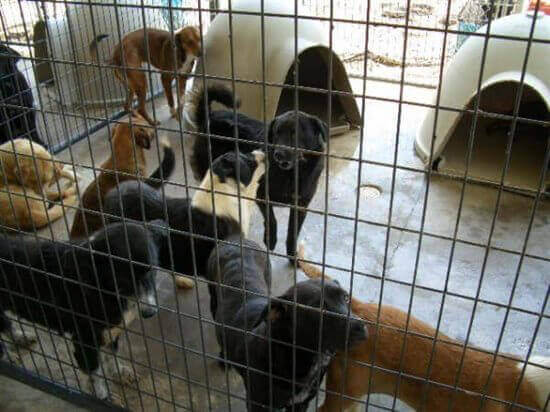How ‘No-Kill’ Fails Animals: The List Keeps Growing
Anyone who has a hard time understanding why PETA hasn’t hopped onto the “no-kill” bandwagon should have a look at this long list of failures of limited-admission (i.e., “no-kill”) shelters and rescues. There have been so many raids, busts, and seizures that we can’t even be sure that we have kept up with them all.

Rescued From a ‘Rescue’?
One of the latest tragedies comes from Muncie, Indiana, where 63 dogs and puppies were seized from a single-story house operating as “Adopt a Lab Rescue and Adoption.” Living conditions were so foul that one official characterized it as being “like a dungeon in the basement.” Some of the dogs had reportedly been bought from a “broker.” This same facility had also been raided in 2010, when 30 dogs were removed because of poor conditions, including keeping animals in crates without food or water for up to 21 hours a day.
Limited Admission, Limited Compassion
No one wants to euthanize animals, least of all people who dedicate their lives to helping them. And we should all be deeply upset that in this day and age, shelters must still resort to euthanasia—but breeding and buying animals from pet shops is still legal (in most places)! The reality is that there are more animals in need of homes than there are people ready to adopt them. Even if we could build enough shelters to hold all of them, these animals need real homes and families to love them. They can’t be warehoused forever just to make us feel better.
Euthanasia prevents suffering—it is, by definition, humane. But turning away animals in need of shelter is anything but humane. Forcing animals to exist in cages, joyless, for months or years or their entire lives, is inhumane, too, as is allowing animals to suffer in squalor, loneliness, deprivation, and illness.
What You Can Do
There is an answer, and it lies in prevention! We can reduce euthanasia and the need for it by taking the smart, effective approach: animal birth control (ABC). Please start an ABC campaign in your community, and never be silent when animals are at risk.

